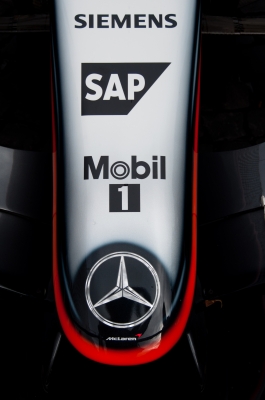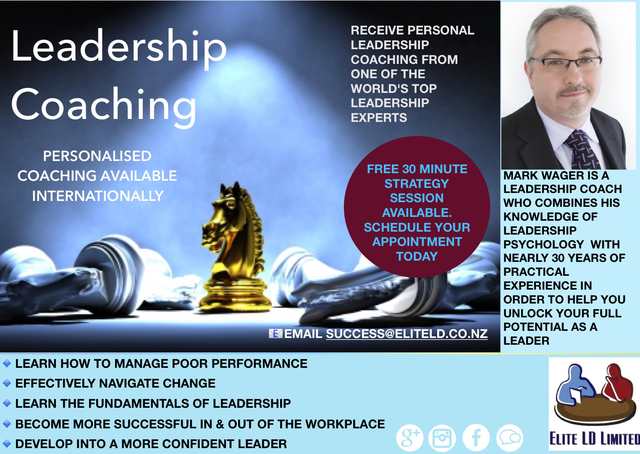Business Lessons From Formula One
Business lessons from Formula One
By Mark Wager
For those of us who are lucky enough to be responsible for a business, share a drive, an inner desire for the team to be successful. I work with businesses from many different industries and while every industry brings its own unique challenges, the fundamentals of being successful remain constant. This allows you to look for lessons on successful leadership outside your industry and there's no better area to look than within the ultra competitive world of sports. In many sports the difference between winning and losing can be measured in a few centimetres, a few points or even a fraction of a second so every single advantage you can find is vital.
Formula One is a multi-billion dollar business with major corporations such as Ferrari, Mercedes and Red Bull spending millions of dollars to compete for the Formula One constructors championship. The best drivers in the world in cars reaching speeds of over 350 km/h competing against each other in races held all around the world. In 2015 the annual budget for the top teams were regularly over $700 million a year. It's a high-pressure, extremely competitive environment and a great place to learn lessons that can help any business.
Have a clear definition of success
Let's start with the obvious. The reason why sport and Formula One in particular contains lessons that any leader can understand is the clarity of success. There's no debate over who wins in Formula One, it's the car that crosses the finishing line first. In business, it's common to have a vision of the direction of the organisation and even the teams and individuals within the organisation will have their goals but it's not so common for the vision to have a clear metric. To succeed your vision needs to be so clear that there's no debate when you have realised that vision so instead of your business focussing on "becoming a leading brand" or "having a motivated and passionate workforce" you need to ask what are the metrics that will demonstrate those statements correct. A lot of teams fail because they have a different perception of what success is, avoid this by making it perfectly clear what your business's finishing line looks like.
Look for marginal gains
For an industry that requires everyone to work within the same regulations and the difference between coming first and coming twenty second can be less than five seconds a lap, innovation becomes a very valuable commodity. We often view innovation as a brand new idea but Formula One demonstrates that the search for a small differences what they call "marginal gains" is what achieves success. A typical formula one car will have approximately 4,000-5,000 parts that have been specially designed and during a five month season you will often find that around 3,000 of those parts will be changed, improved or modernised. If you want a creative environment in your business then you need to focus in on a relaxed environment that allows people to challenge current ideas in a respectful manner without a fear of making mistakes alongside an appreciation of the work that other departments produce. The motto of Red Bull Racing says it all "Be brave and do things differently"
Teamwork = Clarity + trust + execution
There can be no better example of effective teamwork on action than the Formula One pitstop. During the race the driver will take his car to the pitstop where a team of mechanics will change all four wheels of the car, refuel the car and make any urgent adjustments all within a few seconds. The key to this success is the same with all teams, firstly they have clarity of roles. It takes four people to change each wheel, there's someone who's job it is to sip the drivers visor everyone is fully aware of what they have to do in order for the team to get the reusing it wants. Secondly there's trust, if one person fails the team fails so there's compete trust that everyone will fulfil their roles. The technician who uses a jack to raise the car has to stand in front of the car when it approaches at 80 km/h he has full trust in the skills of the driver to stop at precisely the right moment. The final element is execution. A typical pitstop team will practice around 70-80 times each race weekend they will work until they get as close to perfection as they can because they know a good pitstop could be the difference between winning and losing.
Recruit passionate people
In business, people tend to recruit with a primary focus on ability yet what sport tells us is that ability is not the most significant indicator of success. How many times have we seen an underdog beat the favourite. Given a long enough time frame passion will always beat ability. In Formula One, probably the sport most reliant on ability both in terms of the ability of the car and of the driver, you wouldn't think passion would be so high on the agenda for recruitment but you would be wrong. In a recent documentary "Two Weeks to Win" Victoria Vowles, Marketing Operations Director of Mercedes AMG Petronas Formula One Team said "You don't get much sleep, you are on the road, you are constantly travelling, it's really tiring it's really exhausting therefore you have to have motivated passionate people to be able to do this job." In business, remember that ability is important for success but passion is essential. If you recruit people who believe in what you believe in and genuinely enjoy their work then it stops being a job and becomes a passion.
Build business partners
Every successful sportsman and businessman will tell you that success is a collaborative effort. In Formula One the focus is on the driver but behind every driver there is a large complex team. A successful driver can't win without an engineer to oversee the setup and running of the car. They need mechanics to work and fix the car and they need Marketing Managers to raise the considerable funds required to race in Formula One. With about half of a team's annual budget coming from sponsorship, having relationships with business partners are vital and consider when it comes to sponsorship a team is not just competing with other Formula One teams but with other teams from other sports. In business you need to constantly look at building partnerships with any other business that could potentially provide value for both parties and look beyond your suppliers and customers and even beyond the nature of your business because more partners you have the greater your chance of success.
Formula One is a glamorous sport but underneath that glamour you will find complex highly effective teams looking to find every advantage they can to win and that is what every business needs to do, they need to find every advantage they can so when you next watch Formula One enjoy the race but also look for any lesson that can help you become better because wherever you find excellence you will find lessons for success.
Image courtesy of franky242 at FreeDigitalPhotos.net
Posted: Monday 28 November 2016


